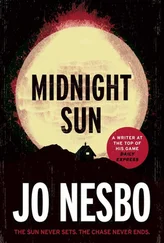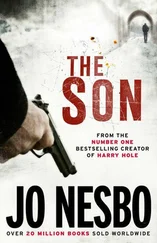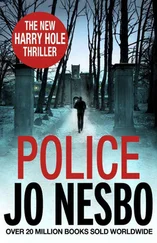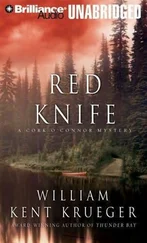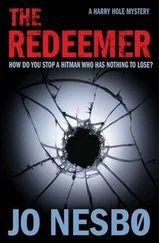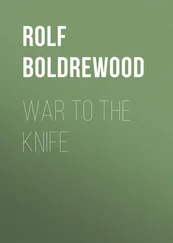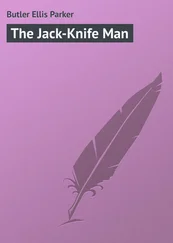Could he follow that path again? Drive up the steep, winding, difficult road to Rakel and introduce himself again. Be the man she had never met before. Of course he could try. Yes, he could do that. And now was as good a time as ever. The perfect time, in fact. There were just two problems. Firstly, he didn’t have the money for a taxi. But that was easily fixed, it would take him ten minutes to walk home, where his Ford Escort, his third one, was sitting covered in snow in the car park in the backyard.
Secondly, the voice inside him telling him it was a terrible idea.
But that could be stopped. Harry downed his drink. Just like that. He stood up and walked towards the door.
“See you, mate!” the bartender called after him.
Ten minutes later Harry was standing in the backyard on Sofies gate, looking dubiously at the car, which was parked in eternal shadow between the snowboards covering the basement windows. It wasn’t as badly covered with snow as he had expected, so he just had to go upstairs, fetch the keys, start it up and put his foot on the gas. He could be at hers in fifteen minutes. Open the front door to the big, open room that served as hall, living room and kitchen, covering most of the ground floor. He would see her standing at the worktop by the window looking out over the terrace. She would give him a wry smile, nod towards the kettle and ask if he still preferred instant coffee over espresso.
Harry gasped at the thought of it. And there it was again, the claw in his chest.
Harry was running. After midnight on a Sunday in Oslo, that meant you had the streets to yourself. His cracked trainers were held together with gaffer tape around the ankles. He was taking the same route the daughter on Borggata had said she had run, according to the report. Along illuminated paths and tracks through the hillside sculpture park — a gift to the city from property tycoon Christian Ringnes, and an homage to women. It was perfectly still, the only sounds were Harry’s own breathing and the crunch of the grit beneath his shoes. He ran up to where the park flattened out towards Ekebergsletta, then down again. He stopped at Damien Hirst’s Anatomy of an Angel , a sculpture in white stone that Rakel had told him was Carrera marble. The graceful, seated figure had made Harry think of the Little Mermaid in Copenhagen, but Rakel — who as usual had read up on what they were going to see — had explained that the inspiration was Alfred Boucher’s L’Hirondelle from 1920. Maybe, but the difference was that Hirst’s angel had been cut open by knives and scalpels so that her innards, muscles, bones and brain were visible. Was that what the sculptor wanted to show, that angels were also people inside? Or that some people are actually angels? Harry tilted his head. He could agree on the latter point. Even after all these years and everything he and Rakel had been through together, and even if he had dissected her as much as she had dissected him, he had found nothing but an angel. Angel and human, all the way through. Her capacity for forgiveness — which had obviously been a precondition for being with someone like Harry — was almost limitless. Almost. But obviously he had managed to find that limit. And then crossed it.
Harry looked at his watch and ran on. Sped up. Felt his heart work harder. He increased his speed a little more. Felt the lactic acid. A bit more. Felt the blood pumping around his body, tugging at the rubbish. Ironing out the past few bad days. Rinsing away the shit. Why did he imagine that running was the opposite of drinking, that it was the antidote, when it merely gave him a different type of rush? But so what? It was a better rush.
He emerged from the forest in front of the Ekeberg Restaurant, the once run-down modernist structure where Harry, Øystein and Tresko had drunk their first beers in their youth, and where the seventeen-year-old Harry was picked up by a woman he remembered as being really old, but who was probably only in her thirties. Either way, she had given him an uncomplicated initiation under her experienced direction, and he probably hadn’t been the only one. Occasionally he wondered if the investor who had refurbished the restaurant might have been one of them, and had done it as a gesture of gratitude. Harry could no longer remember what she looked like, just the cooing whisper in his ear afterwards: Not bad at all, lad. You’ll see, you’re going to make some women happy. And others unhappy .
And one woman, both.
Harry stopped on the steps of the closed, dark restaurant.
Hands on his knees, head hanging down. He could feel his gag reflex tickling deep in his throat, and heard his own rasping breath. He counted to twenty as he whispered her name. Rakel, Rakel . Then he straightened up and looked down at the city beneath him. Oslo, an autumn city. Now, in spring, she looked like she had woken up reluctantly. But Harry wasn’t bothered about the centre of the city, he was looking towards the ridge, towards her house, on the far side of what, in spite of all the lights and febrile human activity, was really nothing but the crater of a dead volcano, cold stone and solidified clay. He cast another glance at the timer on his watch and started to run.
He didn’t stop until he was back in Borggata.
There, he stopped his watch and studied the numbers.
He jogged the rest of the way home at an easy pace. As he unlocked the door to his flat he heard the rough sound of grit against wood under his trainers and remembered what Katrine had said about picking his feet up.
He used his phone to play more of his Spotify list. The sound of The Hellacopters streamed from the Sonos Playbar that Oleg had got him for his birthday, which had overnight reduced the record collection on the shelves behind him to a dead monument to thirty years of laborious collecting, where anything that hadn’t stood the test of time had been pulled out like weeds and thrown away. As the chaotic guitar and drum intro to “Carry Me Home” made the speakers vibrate and he picked the grit from the sculpture park from the soles of his shoes, he thought about how the nineteen-year-old had willingly retreated into the past with vinyl records, whereas Harry was unwillingly backing into the future. He put his shoes down, looked for The Byrds, who weren’t on any of his playlists — sixties and early seventies music were more Bjørn Holm’s thing, and his attempts to convert Harry with Glen Campbell had been futile. He found “Turn! Turn! Turn!”, and moments later Roger McGuinn’s Rickenbacker guitar was echoing around the room. But she had been converted. She had fallen in love with it even though it wasn’t her music. There was something about guitars and girls. Four strings were enough, and this guy had twelve.
Harry considered the possibility that he might be the one who was wrong. But the hairs on the back of his neck were rarely wrong, and they had stood up when he recognised one of the names from the record sleeve in the interview transcript. And connected it to the picture of the guy with the Rickenbacker guitar. Harry lit a cigarette and listened to the double guitar solo at the end of “Rainy Days Revisited.” He wondered how long it would be before he fell asleep. How long he would manage to leave his phone alone before checking to see if Rakel had replied.
“We know you’ve answered these questions before, Sara,” Harry said, looking at the nineteen-year-old girl sitting opposite him in the cramped interview room that felt a bit like a doll’s house. Truls Berntsen was sitting in the control room with his arms folded, yawning. It was ten o’clock, they had been going for an hour and Sara was showing signs of impatience as they went through the sequence of events, but no emotion beyond that. Not even when Harry read out loud from the report about the injuries her mother had suffered from the thirteen knife wounds. “But, as I said, Officer Berntsen and I have taken over the investigation, and we’d like to understand everything as clearly as possible. So — did your father usually help with the cooking? I’m asking because he must have been very quick to find the sharpest kitchen knife, and must have known exactly which drawer it was in, and where.”
Читать дальше


